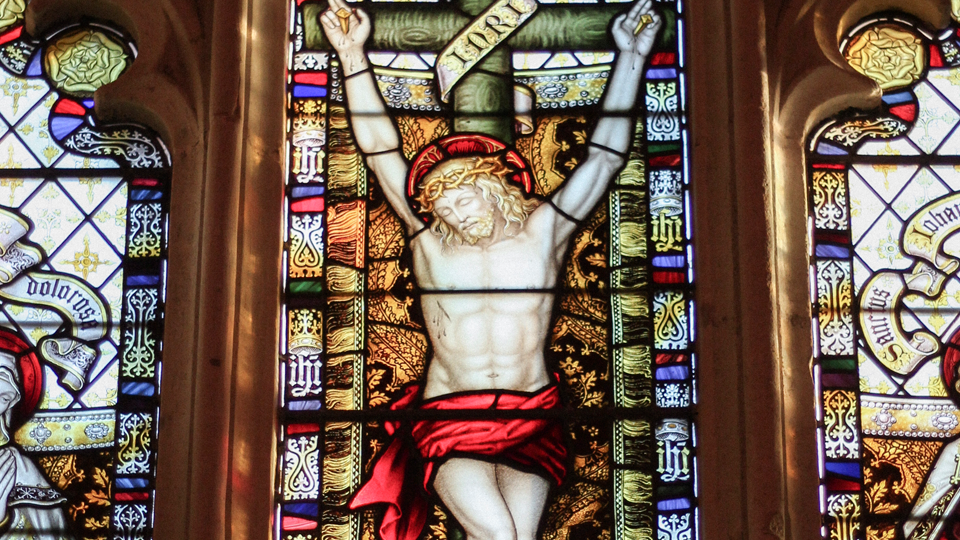Why I Believe the Athanasian Creed is Vitally Important to the Message of Salvation
The church has had to deal with heresy for as long as there has been sin. Trying to get the most accurate understanding of God and how He reveals Himself is a difficult thing, especially when you try to put into human words the revelation of a transcendent God. The church has continuously battled inaccurate views of God and had to make statements about what we believe the Bible says about God. Out of those discussions, prayer sessions, and intense studying of God’s Word have been borne the three great definitions of God’s Trinitarian nature, what we call the Apostles’ Creed, the Nicene Creed, and the Athanasian Creed. All have something to say about God and His revealed plan, but when it comes to salvation, I believe that the Athanasian Creed is vitally important. It is the longest of the Creeds, most ethereal in it’s statements about God, and unfortunately gets negative press because of the difficulty in understanding it brings. I believe we need to renew our efforts and strategy in bringing it’s necessary message to not just longtime Christians, but also new believers.
The Athanasian Creed explicitly states: Whosoever will be saved, before all things it is necessary that he hold the catholic faith; … and the catholic faith is this: That we worship one God in Trinity, and Trinity in Unity.
Before all things. Before anything else. Before anything else we must have a Trinitarian belief in God. When was the last time we heard that there be that strong of an emphasis on belief in the Trinity for salvation? God the Father is vitally important. God the Son is vitally important. God the Holy Spirit is vitally important.
Why do I believe that this is important? Because I don’t think the church teaches this at the foundational level in the way that the church of history has believed it should be.
All of the Creeds are important, and will always be important, because the world will continue to deny the Trinitarian aspect of God. But, when it comes to what we need to know in order to be saved, the Athanasian Creed tells us specifically what we must believe. The Apostles’ Creed and the Nicene Creed do not make that categorical statement. Each of the Creeds reveals something a little different about God, but here’s the interesting thing: their emphasis on Jesus, beyond His place as the Second Person of the Trinity, is His incarnation. The great power leading to salvation is uniquely tied to His being born into this world and being both fully God and fully man. More emphasis is placed on our belief that the Incarnation is true than what happened at Calvary. That is not to say that the writers of the Creeds did not think that the cross was important, but they believed that the message of Jesus as Savior was already preached to the people. What needed full explanation for the sake of salvation was that Jesus was fully God and fully man. Salvation could not and cannot happen without it. The cross means nothing if not for the Incarnation.
People don’t have time to read something long. Or, they don’t take the time if they don’t want to. People will read long novels or books to improve their business acumen, but a pivotal statement of the Christian faith, nah. It’s got a few too many lines. Perhaps if the church didn’t relegate it to one Sunday a year (Trinity Sunday), if that, as if it were some ritual just to be done, some bothersome checkmark in our church life, we might have more of an appreciation for the statements that lie within it. Maybe if pastors weren’t so apologetic about making their congregations recite it for 10 minutes during church, we’d be able to appreciate what it says more fully. If you have to make excuses as to why you do something, don’t do it. You obviously don’t feel it’s that important. The Athanasian Creed, and God Himself, deserves more respect than that.
Thankfully, we live in a church that is very Trinitarian. We confess the Trinity as true, accurate, and necessary. And all of the historic Creeds give us a message that, as Christians, we cannot live without. I don’t think that we can hold one over the other, but when it comes to the bold proclamation of what we need to know for salvation’s goal, the Athanasian Creed tells it like it is. Each of the Creeds, by themselves, give a different perspective on God’s Triune nature. I liken it to the differences between the Gospels: Matthew, Mark, and Luke have a lot of the same stories from the life of Jesus, with little perspective differences and a few parables or miracles that differ from book to book. But they’re very similar. Then you read John’s Gospel, and he has a completely different set of stories about Jesus because he’s got a different agenda and approach to writing. The Apostles’ Creed and the Nicene Creed are like Matthew, Mark, and Luke; they have a lot of the same doctrinal statements about the Triune nature of God, with little stylistic differences here or there. Then you read the Athanasian Creed. It is completely different in its perspective on what is important to know about God. And then, taken together, they act like the Gospels taken together, a more complete picture of the God we worship.
I encourage you this week to read the three Creeds. I think you’ll be surprised as to what they say and how they differ. I think you’ll be surprised as to what they say about our belief system of salvation. If you’re used to only seeing the Athanasian Creed as you try to keep up with everyone saying it out loud in church, take time to absorb its depth. This is not an exercise in trying to fully comprehend what is being said, but to marvel at what the writer and the church has believed to be truly of importance. Let me know how we might make the Athanasian Creed more foundational in our process of instruction on what is necessary for the faith. Join the discussion below. Amen.




Vicki, I’m glad to hear you think it would be good to study this stuff. If you’d like I can get a Bible Study together for July and August on this topic.
When would you do this bible study? I would like to study the creeds.
Well doesn’t this sound like this would make a great bible study on Sunday mornings and not just a 4 or 6 week study, a study until we fully understand what the Athanasian Creed is stating and that we believe it to be true. Like reciting the other 2 creeds without really taking the time to read and fully absorb what we are stating and professing, it does become just a ritual. And yes I did read the three creeds and have some questions for bible study! Blessings, Vicki